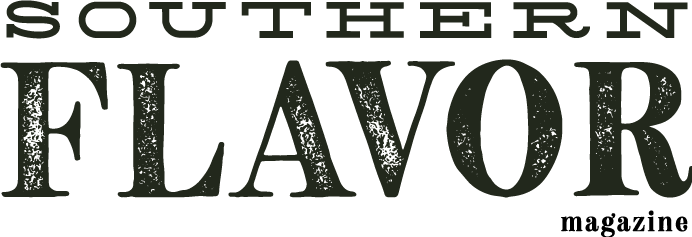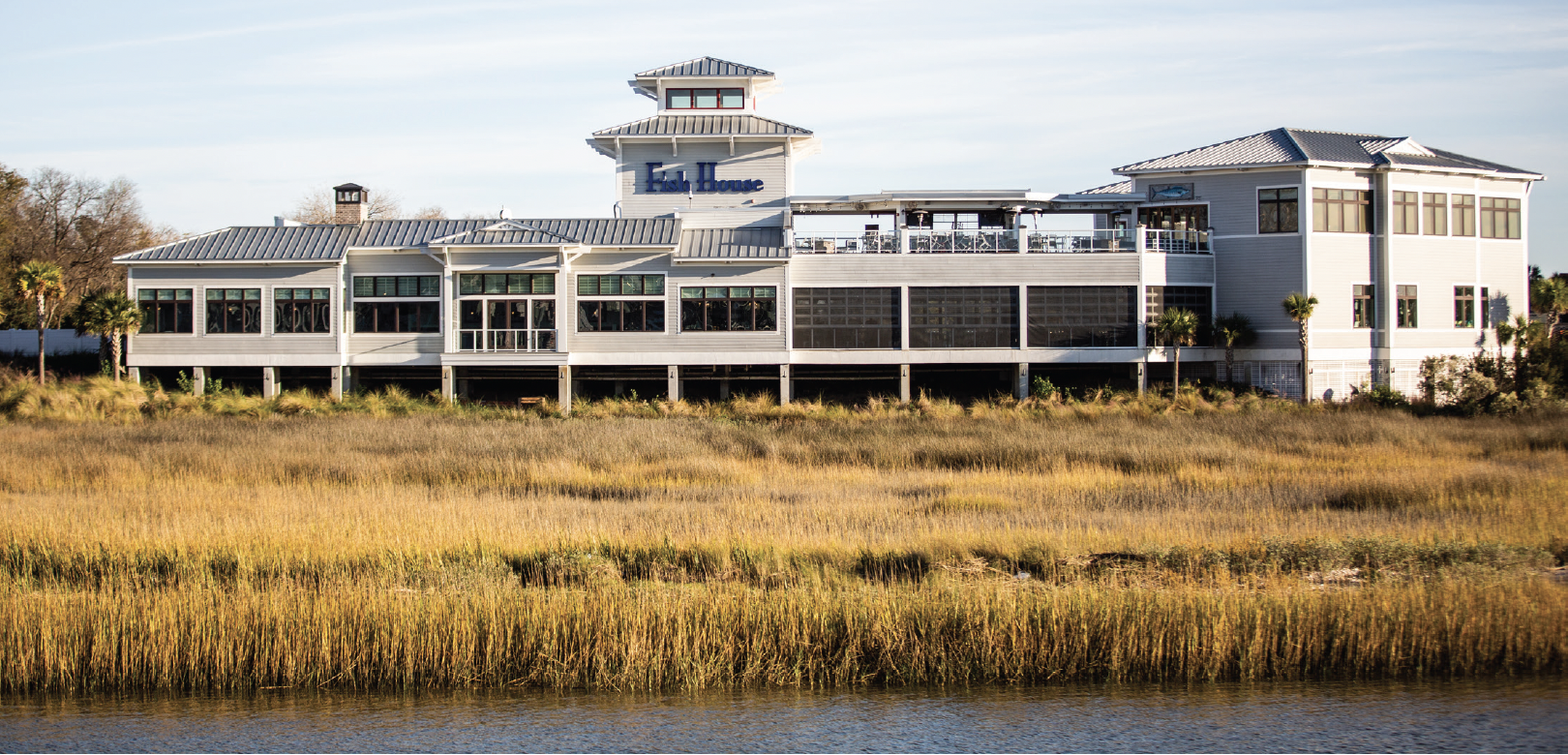Championing Good Catch and Seasonal Flavor at The Charleston Harbor Fish House
by Pamela Jouan
At The Charleston Harbor Fish House, perched on the tip of Patriots Point with panoramic views of the water, seafood isn’t just a menu item—it’s a responsibility. Executive Chef Richard Goudreau knows this well. With a career spanning fine dining, catering, and coastal kitchens from New England to Charleston, Goudreau brings more than technique to the table—he brings intention.
This summer, as in the past, that intention shines through in a thoughtfully-crafted menu rooted in seasonal produce, local flavors, and a deep commitment to sustainability. “With each menu,” Goudreau shares, “we try to focus on pairing seasonal fresh herbs with locally grown vegetables as they come into season to pair with our entrées.” One standout example: a lemon herb farro served alongside crab-crusted grouper. “We don’t want the flavors to be stronger than the taste of the fish,” he says, emphasizing restraint and reverence for the main ingredient by not crowding the dish with other ingredients.
This respect for seafood extends far beyond flavor. Goudreau is a proud participant in Good Catch, a South Carolina Aquarium initiative that champions responsible harvesting practices and supporting coastal fisheries, which align perfectly with Goudreau’s philosophy. “The Good Catch program is something I believe in strongly,” he says. “Coming from New England, I have always worked closely with our seafood merchants to ensure that the fish bought were not being harvested to extinction.”
At The Fish House, this means sourcing from local fishermen whenever possible—an easy commitment given Charleston’s bounty. “Some of the best seafood available is just a few miles from our restaurant!” Goudreau notes. It’s not just about proximity, but stewardship—ensuring that this wealth of resources remains abundant for generations to come.
The chef’s dedication to local seafood is best tasted in his signature dishes. The crab-crusted grouper is a prime example of Lowcountry luxury. “It’s a version of an entrée that I prepared in Massachusetts using halibut,” he explains. “Jumbo lump crab is tossed with Ritz crackers, butter, lemon juice and dill. We then top it with a fresh tarragon beurre blanc, which complements both the crab and the fish itself.” The result is a dish that feels at once comforting and refined, rooted in coastal tradition.
Another summer standout is his seafood fettuccine, a deceptively simple plate that hides a wealth of culinary technique. Goudreau, who once spent years as a saucier, adapted a velvety white wine cream sauce from a classic Coquilles St. Jacques dish. “It combines sauvignon blanc, butter, shallots, heavy cream, shrimp stock reduction, and fresh thyme,” he says. “While this sauce is flavorful, it does not overpower the seafood in our dish, which we finish with some grated parmesan cheese.” It’s a dish that allows each component to shine.
This balance—of tradition and innovation, flavor and finesse—is emblematic of Goudreau’s approach to the kitchen. But it also reflects something larger: the culinary identity of Charleston itself. “The Lowcountry style of cooking in the Charleston area is a cuisine that is as unique and diverse as any European style, in my opinion,” he says. “With influences from Black culture, soul food cooking, Spanish and French cooking, with authentic barbecue thrown in for good measure.”
His menu honors these roots in subtle, respectful ways. “We use Carolina Gold rice here as a base for our risottos, which has an earthy flavor that pairs well with seafood and shellfish,” he says. “Black-eyed peas make great hummus. And okra can be found in almost all our stews when we make them.” For Goudreau, these ingredients aren’t trends—they’re essentials.
Despite his storied background in catering and fine dining, Goudreau is as collaborative as he is skilled. He routinely consults with his team and local vendors to keep menus fresh and inspired. “I like to engage my culinary team to utilize their talents to create dishes they feel part of,” he says. “And I talk with my outside vendors—who’s cooking what? Is there some different protein or undervalued meat that I’ve overlooked that will help our menu improve?”
This openness to new ideas, paired with decades of experience, is what keeps The Charleston Harbor Fish House dynamic. And while the view alone might draw you in, it’s the story behind the food—and the care with which it’s prepared—that makes the meal memorable.
For Goudreau, Charleston has become more than just a culinary destination—it’s home. “When I came here, I was fascinated by boning filets out of whole Golden Tile fish, and Mahi Mahi, both caught locally,” he recalls. “Above all, I have met many great people here. There is still a thing called ‘Southern Hospitality’ that is alive and well in the Charleston area! I love it.”
And it’s clear: the feeling is mutual. In every bite of thoughtfully sourced seafood, you can taste not just local, not just Charleston summer, but the chef’s enduring love for both.



